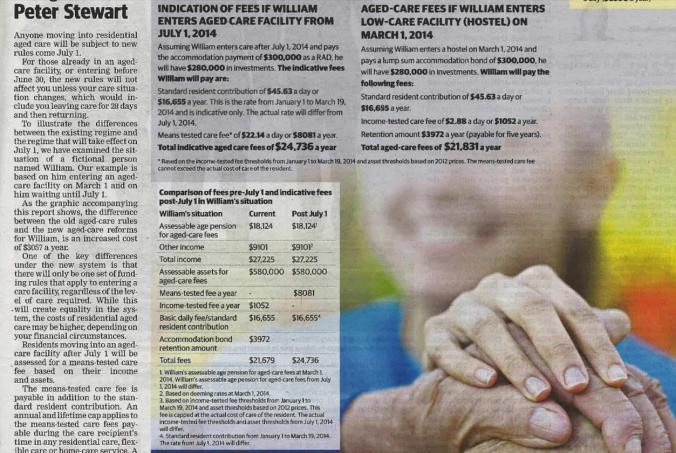BE WARNED – Article by Noel Wittaker
This newsletter is an unusual one because I’m warning you about a menace that is affecting the lives of many Australians, and at the same time asking for your help.
Four years ago the Storm Financial Group collapsed, leaving investors with losses of over a billion dollars. Last week Four Corners revealed another $15 billion in losses – this time through shonky mortgage trusts.
There’s more to come, and the losses have the potential to be even greater. This time the predators are the property spruikers.
A woman I will call Jane is just one of thousands of victims. She is 41 years old, single, and lives in Perth. She had worked hard to pay off her home and was almost debt free. Two years ago she accepted a friend’s invitation to go to a property seminar.
The seminar was supposed to be free – it cost Jane over $200,000.
The seminars always follow the same pattern. The victims are given a long spiel about the growing pressure on government budgets caused by rising life expectancies, and are then shown vivid illustrations of the life of poverty that will be faced by those who don’t take steps to provide for themselves.
But then comes the sting – the way to wealth is to negative gear into residential property. This is followed by complex illustrations showing how quickly you can pay off the mortgage on your home by using the rent from the investment property to speed up the repayments. The cream on the cake is the huge amount of tax that is going to be saved.
That of itself is reasonably harmless – the killer blow is that the spruiker then convinces the victim that the best property for them is one that the spruiker, or its associates, will build on their behalf.
Unfortunately, Jane fell for it and found herself the owner of a property in Caboolture near Brisbane for a total cost of $421,000.
The spruikers had set up a series of loans but it was done in such a convoluted fashion that Jane felt all she was doing was “robbing Peter to pay Paul”. After a few months she also noticed her debts were rising, not falling as promised.
By this stage the alarm bells were sounding. And it didn’t take much research for Jane to realise she’d been sold a dud.
The property sold last month for $299,000. In just two years, Jane has gone from owning a debt free home to being saddled with a debt of over $200,000.
There is now a growing pile of files in my office showing that Jane’s situation is becoming increasingly common.
This area is totally unregulated – this is why you will be on your own if you get taken in. Fortunately the scam is easy to spot once you know what to look for.
As you read this, keep in mind that the way to buy property is to decide on your price range and the area in which you wish to buy, then spend enough time in that area talking to reputable, local real estate agents so you will recognise a bargain when you come across it.
The approach from the property spruikers contravenes all these principles.
First. The approach will always come from the spruiker – it won’t be initiated by you. It may well be by an offer to attend a “free” seminar showing you how to become a millionaire, or else by a simple phone call asking you if you’d like to pay off your home loan quicker while saving tax. Of course, these concepts hit all the right buttons and you’re likely to accept. This will normally be followed by a home visit so they can “qualify” you, after which you’ll be asked to come to an interview at their office to give you more details. This is where the hard sell really starts and these interviews have been known to be as long as six hours, by which time the victim will agree to almost anything.
Second. Even though any seasoned property investor knows the way to wealth is to search out bargains for yourself, the spruiker will take control and try to convince you that they are the only people who can find the right property for you. This is so they can sell you an overpriced property.
Third. There will nearly always be a building contract involved and the rationale is that you’ll save stamp duty, get a new home, and therefore bigger tax breaks. The real reason is it gives the spruiker a better chance to load the price.
Four. In most cases, they will be a one stop shop – once again, to stay in control. You will find they control the lawyer, the mortgage broker, the builder, and the managing agent.
Five. The properties will usually be situated in outlying suburbs and in lower socio-economic areas. Often, the properties offered will be in a different state to the one you live in.
Six. There will invariably be a mortgage required over your own home. The last thing the spruiker wants is for valuation to be done on the overpriced property they are trying to force on you.
Seven. The spruiker will invariably have a most attractive website showing pictures of good looking ordinary Australians, and with heaps of testimonials of how the particular spruiker has helped thousands of people become wealthy.
The sad reality is that this section of the market is totally unregulated. Anybody who is unscrupulous enough can pressure unsophisticated people into buying overpriced real estate.
The only defence we have is to make this practice as widely known as possible to prevent other victims being caught, but we also need feedback to convince the regulators that the laws need to change. Unfortunately, many people who have been caught don’t know how bad their finances are until they try to sell the property, and then they may be too embarrassed to talk about it.
In this newsletter, I’m asking for your cooperation. As well as spreading the word as widely as possible, I’m keen to hear anecdotes and stories to add to my ever growing file, and the bigger the file grows the more chance we have of action being taken to stamp out these unscrupulous operators. Please let me know of your experiences by writing to my usual email address.
Contact Noel Wittaker via his website: http://noelwhittaker.com.au/ or email: noel@noelwhittaker.com.au


